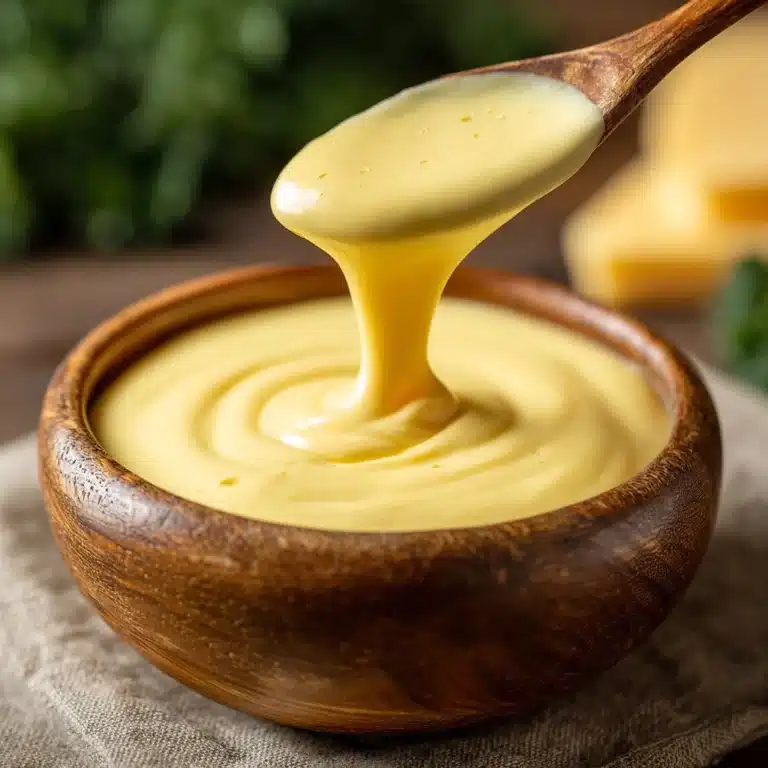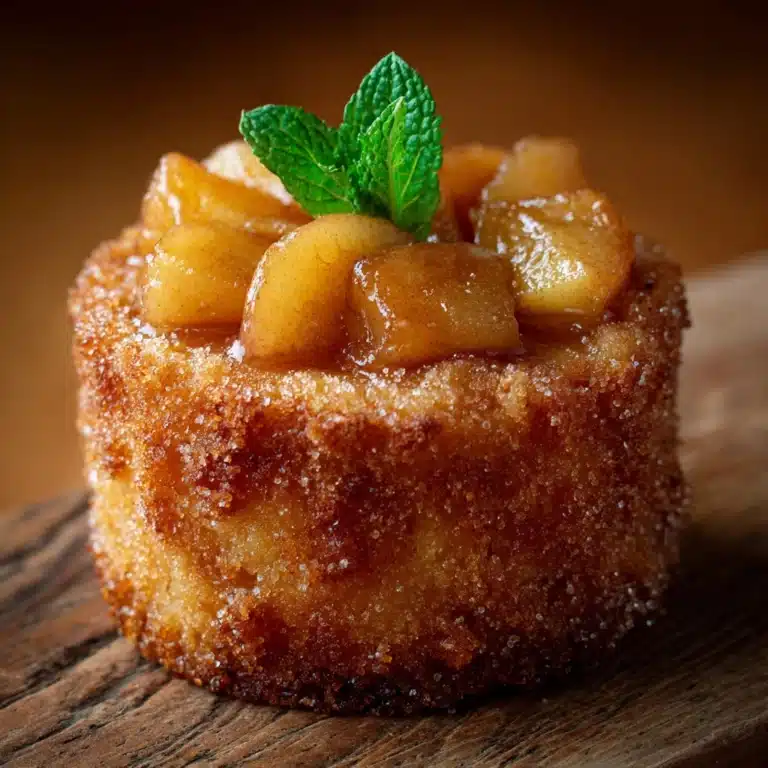Sabayon Recipe
Light, airy, and decadently silky, Sabayon is one of those magical desserts that feels like a celebration in every spoonful. With just a handful of ingredients and a touch of technique, Sabayon transforms eggs, sugar, and wine into an ethereal custard that’s as perfect draped over berries as it is enjoyed on its own. Whether you serve it warm and foamy or chilled and custardy, this classic Italian-French sauce is a showstopper that always draws smiles and sighs of delight. The beauty of Sabayon lies in its versatility and in the way it makes simple ingredients taste truly special.

Ingredients You’ll Need
-
Egg Yolk Mixture:
- 4 large egg yolks
- 1/4 cup granulated sugar
Sabayon Base:
- 1/2 cup sweet Marsala wine (or dry white wine for a less sweet version)
- Optional flavorings such as a splash of vanilla extract, citrus zest, or a dash of liqueur
How to Make Sabayon
Step 1: Prepare the Double Boiler
Fill a medium saucepan with 1 to 2 inches of water, then set it over medium-low heat and bring to a gentle simmer. This indirect heat is your best friend, ensuring the Sabayon cooks gently without scrambling. Make sure your mixing bowl sits snugly atop the pan without actually touching the water below.
Step 2: Whisk the Yolks and Sugar
In a large, heatproof bowl, combine your egg yolks and granulated sugar. Whisk vigorously until the mixture turns pale yellow and slightly thickens—this is your first step toward that incredible creamy texture. The sugar does more than just sweeten: it also helps create that beloved airy foam.
Step 3: Cook and Whisk the Sabayon
Set the bowl over your gently simmering water, making sure it doesn’t touch the water. Now comes the fun part: while whisking constantly, slowly drizzle in the Marsala wine. Keep that whisk moving for about 8 to 10 minutes. Watch as the Sabayon mixture triples in volume, becoming thick, foamy, and cloud-like, reaching about 160°F (71°C). Trust your eyes—a light, glossy custard with soft peaks is what you want.
Step 4: Finish and Serve
When your Sabayon reaches the perfect thickness and temperature, take the bowl off the heat right away to avoid overcooking. Serve it straight away while airy and warm, or chill for a few hours to enjoy a mousse-like, billowy treat. Either way, it’s irresistible!
How to Serve Sabayon

Garnishes
The garnish is where you let your creativity shine! Classic Sabayon loves the company of fresh berries—strawberries, raspberries, or blueberries are divine with its sweet, rich flavor. A dusting of citrus zest or a few toasted nuts on top can add color and crunch, taking this dessert from simple to showstopping with just a sprinkle.
Side Dishes
Sabayon is a star on its own poured over seasonal fruit, but it also makes a perfect companion to simple cakes or cookies. Try serving it alongside soft sponge cake, poached pears, or even on top of a crumbly biscotti for added texture. Every bite is an elegant harmony of flavors!
Creative Ways to Present
Don’t be afraid to have a little fun—spoon Sabayon into elegant glasses for a sophisticated dinner party treat or layer it in parfait glasses with poached fruit for something more dramatic. You can even serve it chilled in espresso cups for a miniature, mousse-like dessert. However you present it, Sabayon always gets a warm welcome!
Make Ahead and Storage
Storing Leftovers
If you happen to have extra Sabayon (as rare as that may be), transfer it to an airtight container and refrigerate promptly. It will keep well for up to 48 hours. The texture may thicken slightly, but the flavors actually meld beautifully as it chills.
Freezing
Sabayon isn’t ideal for freezing because the delicate foam can collapse and the custard may separate once thawed. If you must, freeze in small portions, then thaw gently overnight in the refrigerator, but know that the luscious, airy consistency will be lost.
Reheating
To regain some of that signature silkiness, gently rewarm refrigerated Sabayon by placing the container in a bowl of hot water for a few minutes, stirring gently. Avoid microwaving, as that can overcook (or even scramble) the custard.
FAQs
What is the difference between Sabayon and Zabaglione?
Basically, these are two names for the same delightful dessert—Sabayon is the French version, while Zabaglione is Italian. Both use egg yolks, sugar, and wine, but you might find slightly different wines or flavorings in each country’s tradition.
Can I use something other than Marsala wine?
Absolutely! While Marsala is the classic choice, you can swap in a dry white wine, sparkling wine, or even a sweet liqueur. Each gives Sabayon a unique twist—experiment and discover your favorite version.
Is Sabayon safe to eat since it uses raw eggs?
No worries—the eggs are cooked gently over simmering water until they reach at least 160°F, which is considered safe. Just make sure you whisk it thoroughly and monitor the temperature if you’re concerned.
How do I know when Sabayon is done?
Watch for a thick, pale, and tripled-in-volume mixture that holds soft peaks when you lift the whisk. If you have a thermometer, 160°F is the sweet spot—too hot and you risk scrambling, too cool and it won’t set properly.
Can Sabayon be made dairy free?
It can! Traditional Sabayon contains no cream or milk, so as long as you stick to wine, eggs, and sugar, you’re all set. Just check your optional flavorings if allergies are a concern.
Final Thoughts
There’s something simply magical about whipping up Sabayon—it’s easy, elegant, and outrageously delicious every time. This is the kind of treat that makes both everyday meals and special occasions more memorable. Give it a try, get playful with your flavors and toppings, and let Sabayon bring a little sunshine to your table!
Print
Sabayon Recipe
- Total Time: 15 minutes
- Yield: 4 servings 1x
- Diet: Gluten-Free, Vegetarian
Description
Sabayon, also known as zabaglione, is a delightful Italian dessert sauce made with egg yolks, sugar, and sweet Marsala wine. This creamy, light custard can be served warm over fresh fruit or chilled for a thicker, mousse-like consistency. It’s a versatile sauce perfect for topping off a variety of desserts.
Ingredients
Egg Yolk Mixture:
- 4 large egg yolks
- 1/4 cup granulated sugar
Sabayon Base:
- 1/2 cup sweet Marsala wine (or dry white wine for a less sweet version)
- Optional flavorings such as a splash of vanilla extract, citrus zest, or a dash of liqueur
Instructions
- Prepare Egg Yolk Mixture: Whisk egg yolks and sugar in a heatproof bowl.
- Heat Water: Simmer water in a saucepan.
- Add Marsala: Slowly drizzle Marsala into egg mixture over simmering water, whisking constantly.
- Whisk Sabayon: Continue whisking over heat until thick and foamy.
- Serve or Chill: Serve warm or chill for a few hours for a mousse-like texture.
Notes
- Sabayon is best served warm immediately or chilled for a different texture.
- Experiment with different wines or liqueurs for unique flavors.
- Prep Time: 5 minutes
- Cook Time: 10 minutes
- Category: Dessert
- Method: Double Boiler
- Cuisine: Italian-French
Nutrition
- Serving Size: 1/4 recipe
- Calories: 160
- Sugar: 13 g
- Sodium: 20 mg
- Fat: 7 g
- Saturated Fat: 2 g
- Unsaturated Fat: 4 g
- Trans Fat: 0 g
- Carbohydrates: 14 g
- Fiber: 0 g
- Protein: 4 g
- Cholesterol: 215 mg






